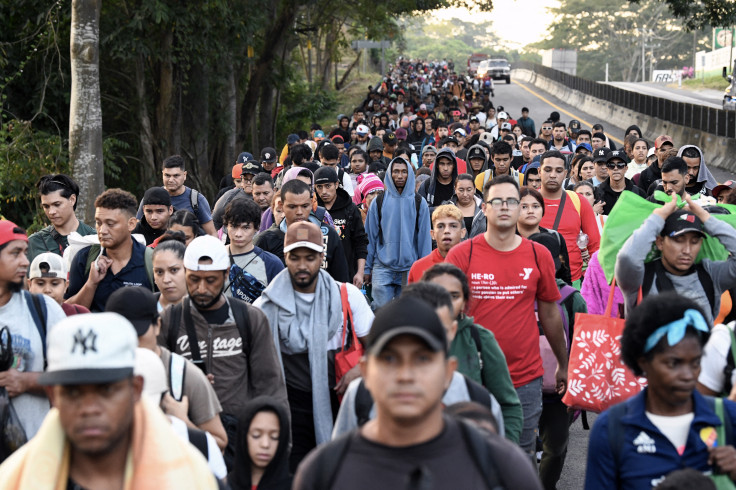
Over 2,000 migrants from different countries left the city of Tapachula on Monday—the day of President Donald Trump's inauguration—and started making their journey to the United States, despite Trump's mass deportation warnings and early executive orders targeting asylum seekers.
The caravan, composed of family groups and individuals, is likely to be dismantled before reaching the southern U.S. border, according to Dr. Victor M. Manjarrez, former CBP Chief turned university lecturer. "They will have been broken up into smaller groups that could hardly be confused with a caravan," he suggested, based on precedents and his own experience.
The Mexican government has been highly focused on dismantling large migrant groups both during the final part of the Biden administration and after Trump threatened the country with tariffs if it failed to curb illegal immigration into the United States. Mexican authorities have successfully disassembled six migrant caravans heading north in November and December. Most of them have been disbanded within hours of crossing the Chiapas-Oaxaca border, per El País.
Mexican authorities have beencredited with the reduction in crossings and apprehensions at the U.S-Mexico border. While their measures have been questioned by civil rights groups, it is likely that the Mexican government will continue derailing and detaining migrants amid increased pressure from the Trump administration.
Despite the effectiveness of these efforts, some migrants have managed to evade Mexican authorities and successfully reach the U.S.-Mexico border, whether as part of a caravan, a smaller group, or alone. Manjarrez expects those who do to attempt crossing into the U.S. without being detected.
However, those who choose to cross will not be able to apply for asylum as they could in the past. Reports indicate that the Trump administration has instructed U.S. border agents to immediately deport migrants crossing the U.S.-Mexico border, denying them asylum hearings.
Trump has also ordered the deployment of troops to the border and declared a state of emergency, further intensifying the challenges for migrants attempting to cross undetected.
Recent reports indicate that some migrants are choosing to wait in shelters in Mexican border cities, hoping that Trump will provide them with a legal path to enter the United States—a prospect that is highly unlikely.
These individuals may also encounter a hostile environment, according to Manjarrez. "As they gather on the border, the government of Mexico will face increased pressure to prevent people from 'loitering' along the border," he added.
Immigrant advocates have condemned Trump's initial orders targeting asylum seekers, calling them a violation of human rights. They warn that hundreds of asylum seekers and refugees will be left stranded in dangerous Mexican border cities, facing limited options and scarce resources.
© 2025 Latin Times. All rights reserved. Do not reproduce without permission.





